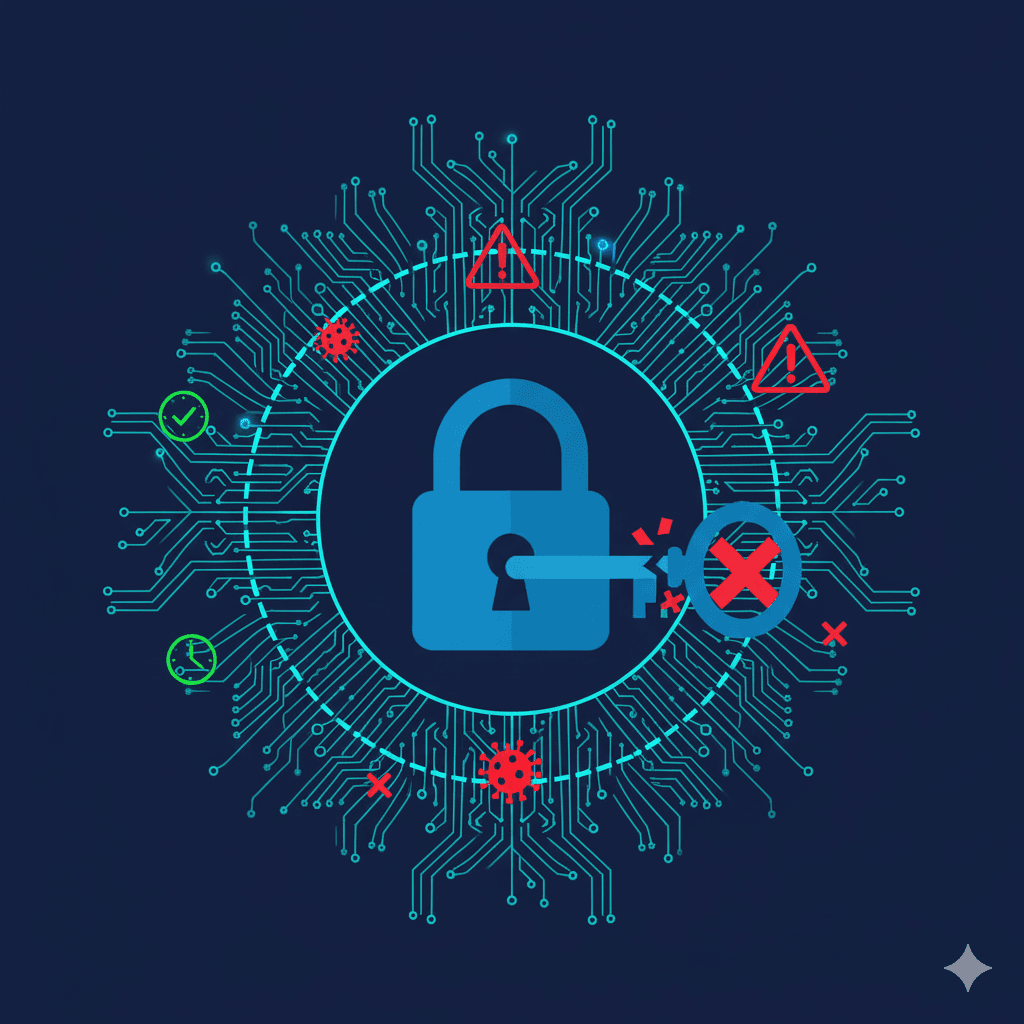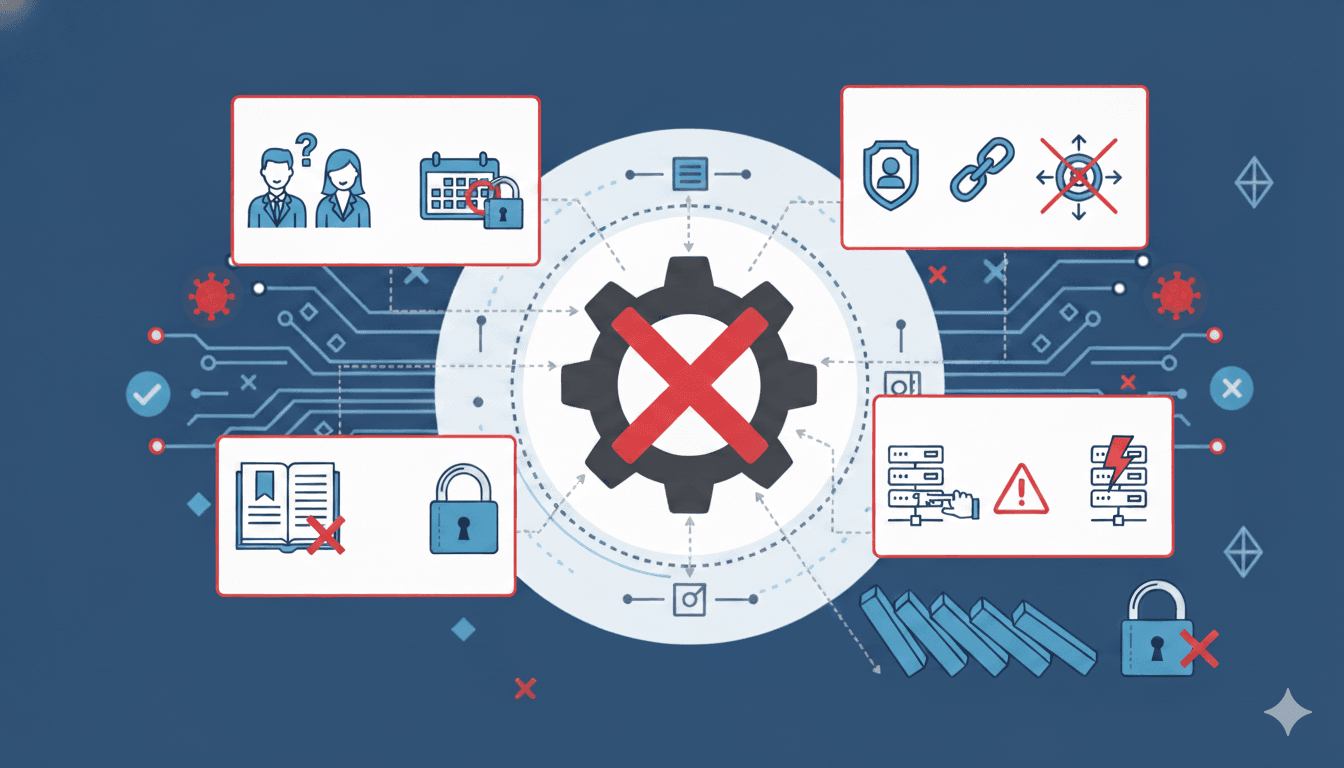The Expired Key: Why Your Leadership Is Accountable for Basic Digital Security
Alec Cantin
Published November 6, 2025 · 5 min read

Governments are the ultimate stewards of sensitive data—the national ID numbers, banking details, and payroll histories of every public servant. When this trust is broken, it signals a complete failure of leadership, not just technology.
Take the case of the Integrated Payroll and Personnel Information System (IPPIS) in Nigeria. This critical platform was recently found to be running with an expired SSL/TLS certificate. This wasn't the work of an elite hacking group; it was the result of a missed renewal date. The IPPIS incident is a global case study proving that basic digital hygiene is now a C-suite responsibility.
The Simple Error That Creates Monumental Risk
For a tech audience, the importance of SSL/TLS is non-negotiable. It’s what delivers the HTTPS connection, and its primary job is twofold:
Data Encryption: It scrambles the flow of data between the user and the server. When the certificate lapses, all traffic—passwords, salary figures, and personal identifiers—is sent in plain text. This is a free pass for a Man-in-the-Middle (MITM) attack, where anyone can eavesdrop and harvest credentials.
Server Authentication: The certificate confirms the website's identity. If it's expired, the browser throws up a massive red flag, telling users, "We can't prove this is the real government site." This instantly kills digital trust and opens the door for convincing phishing scams.
For any modern organization, especially one managing millions of records, neglecting something this simple proves your operational security status is alarmingly weak. It says, "We're not even managing our calendar," and that's an open invitation to every bad actor on the net.
The Governance Gap: When Process Kills Security
The root cause of an expired certificate is always a failure of the organizational process—a leadership problem, not an IT bug. This is what we call the Governance Gap.
It shows the decision-makers have committed several sins:
1. Underestimating Foundational Maintenance
In large bureaucracies, the security team is often siloed, seen as a cost center rather than a risk management necessity. Leaders prioritize visible Digital Transformation projects (new features, cloud migration) over boring-but-vital tasks like Certificate Lifecycle Management (CLM). The budget or approval for a simple renewal gets stuck in red tape because management doesn't grasp that the small certificate is the most critical key to the whole system. This attitude is a direct policy choice that favors short-term visibility over long-term stability. Learn more about our mission to automate SSL management for SaaS.
2. The Absence of Accountability Architecture
Who was responsible for checking the expiration date? In the IPPIS scenario, the failure suggests no clear owner, no automated alert system, and no Zero-Trust policy framework where security is continuously monitored. When security tasks are everyone's job, they become no one's job. This is not a sustainable model. A responsible leadership team establishes clear metrics and consequences: if a key security credential lapses, the responsible executive must face immediate review. Without this clear line of accountability, the organization is doomed to repeat the failure.
3. Ignoring the Regulations
For government agencies, security protocols aren't suggestions; they are mandates. The IPPIS lapse directly violated the government's own established guidelines requiring cryptographic protection. This moves the failure from "poor management" to regulatory non-compliance. The government is asking citizens to surrender highly sensitive data to a system that the government itself is unwilling to secure according to its own rulebook. This is a profound breach of the social contract.

The Domino Effect: Why Public Data is the Ultimate Target
When this kind of administrative failure happens at a private SaaS company, the consequences are contained to its customer base. When it happens at a government level, the ripple effects are national and permanent.
Foundational Identity Compromise: The data held by payroll systems includes static information—national ID numbers, dates of birth, and employment history—which is permanent. Once this information is leaked due to a simple SSL lapse, criminals are armed with the components for identity theft that can last a lifetime, far surpassing the damage of a single credit card compromise.
Encouragement for Future Attacks: An expired key is a loud signal that security processes are weak, budgets are tight, and IT staff are likely overworked. This encourages every external actor—from petty scammers to state-sponsored spies—to dedicate resources to finding deeper, more destructive vulnerabilities in that organization's network.
The Loss of E-Government Momentum: Trust is the currency of digital transformation. When citizens can't trust the most basic security feature on a payroll site, they will resist using new online portals for taxes, healthcare, or services. This paralyzes the state’s efforts to modernize and improve efficiency.
The Call to Action: Enforcing Basic Digital Hygiene
To prevent your organization—or your nation's public services—from becoming the next IPPIS headline, leadership must enforce a culture of Digital Due Diligence.
This isn't about buying the most expensive firewall; it's about treating basic security as a leadership priority:
Mandate Automated CLM: Implement systems that automatically monitor and trigger multi-step, human-verified alerts weeks before any critical certificate, domain, or key expires. Read about our robust security framework, including continuous monitoring.
Adopt a Zero-Trust Model: Move away from perimeter defenses toward a Zero-Trust security architecture, where no one—inside or outside the network—is trusted by default. Every transaction must be validated and secured with data encryption, regardless of its destination.
Hold the C-Suite Accountable: Tie executive performance metrics directly to the organization's security status and regulatory compliance. If a core security control lapses, the penalty must be clear and immediate to force the necessary change in behavior.
The simplest security tools are often the most critical. The cost of renewing a digital certificate is negligible. The cost of neglecting it, as the IPPIS case demonstrates, is the total compromise of your organization's mission and the public's trust. Security is no longer optional; it's the cost of entry for modern governance.
Solve This Problem. Forever.
VanityCert.com is the automation engine built to eliminate the challenges you just read about. Stop managing SSL certificates and start building your product.
Book a Free Demo


